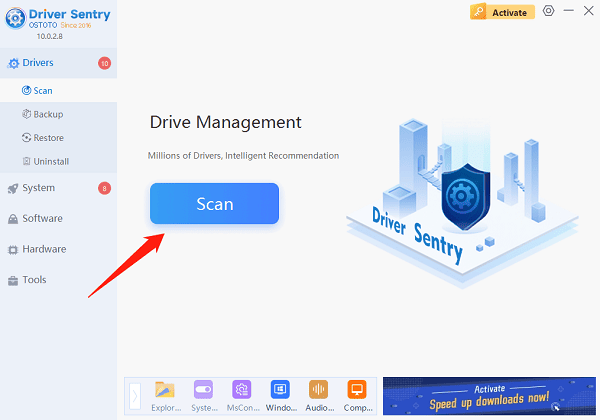
During the use of Windows 10, many users may encounter network connection interruptions. This issue not only affects the internet experience but can also disrupt work or entertainment activities. This article will introduce several common solutions to help you easily fix this error.
1. Check Network Device Connections
Check Router and Modem Connections: Ensure that both the router and modem are powered on and the indicator lights are normal. If there are any issues with the devices, try restarting them by unplugging the power cables, waiting for 1-2 minutes, and then plugging the power back in to see if the network connection is restored.
Check Wired Network Connection: If you are using a wired network, ensure that the Ethernet cable is securely plugged in and not damaged. Try replacing the cable and check if the network disconnect issue is resolved.
2. Update Network Adapter Drivers
Outdated or corrupted network adapter drivers can cause network connection issues. Make sure your network adapter drivers are up to date. It is recommended to use Driver Sentry to automatically detect and update drivers, saving time and avoiding the risk of downloading or installing incorrect drivers.
Click the download button to get the latest version of Driver Sentry, install the software, and open it. Click "Scan".

After the scan is complete, the software will display which drivers are not installed or need updating. Find the network adapter driver in the list and click the "Upgrade" button.
Once the update is complete, it is recommended to restart the computer to ensure the updated driver functions properly.
3. Re-enable the Network Adapter
Right-click the Start menu and select "Device Manager".
In the Device Manager window, expand the "Network Adapters" section and find the network adapter you are currently using.
Right-click the network adapter and select "Disable device".

Wait a few seconds, then right-click the adapter again and select "Enable device".
After restarting the computer, check if the network connection is restored. If the issue persists, try other solutions.
4. Check DNS Settings
Right-click the Network icon and select "Open Network & Internet settings".
Click "Change adapter options", then right-click your network connection and select "Properties".
In the pop-up window, select "Internet Protocol Version 4 (TCP/IPv4)" and click "Properties".
Select Use the following DNS server addresses, then enter the following:
Preferred DNS server:8.8.8.8
Alternate DNS server:8.8.4.4

Click "OK" to save the settings, then check if the network connection is restored.
5. Run the Network Troubleshooter
Press Win + I to open the Settings window. In "Update & Security", select "Troubleshoot".
Click on "Additional troubleshooters", find "Network Adapter", and click "Run the troubleshooter".

The system will automatically detect issues with the network adapter and provide repair suggestions. Follow the instructions to complete the process and check if the network connection is restored.
6. Check Firewall and Security Software Settings
Disable Windows Firewall:
Open Control Panel, select "Windows Defender Firewall", and click "Turn Windows Defender Firewall on or off".
Select "Turn off Windows Defender Firewall (not recommended)", and click "OK". After disabling the firewall, check if the network connection is restored.

Check Security Software:
If you are using third-party security software (such as antivirus software), check its settings to ensure it is not blocking network connections. You can temporarily disable the security software to see if it resolves the network issue.
By following the above steps, you should be able to effectively resolve the Windows 10 network disconnection error. If the issue persists, it may be caused by deeper system problems or hardware failure, and it is recommended to contact technical support for further diagnosis.
See also:
How to Fix Windows 11 Unable to Enter Sleep Mode
Methods to Fix 'HP Printer Driver Is Unavailable'
How to Solve Canon Printer Won't Print Issue